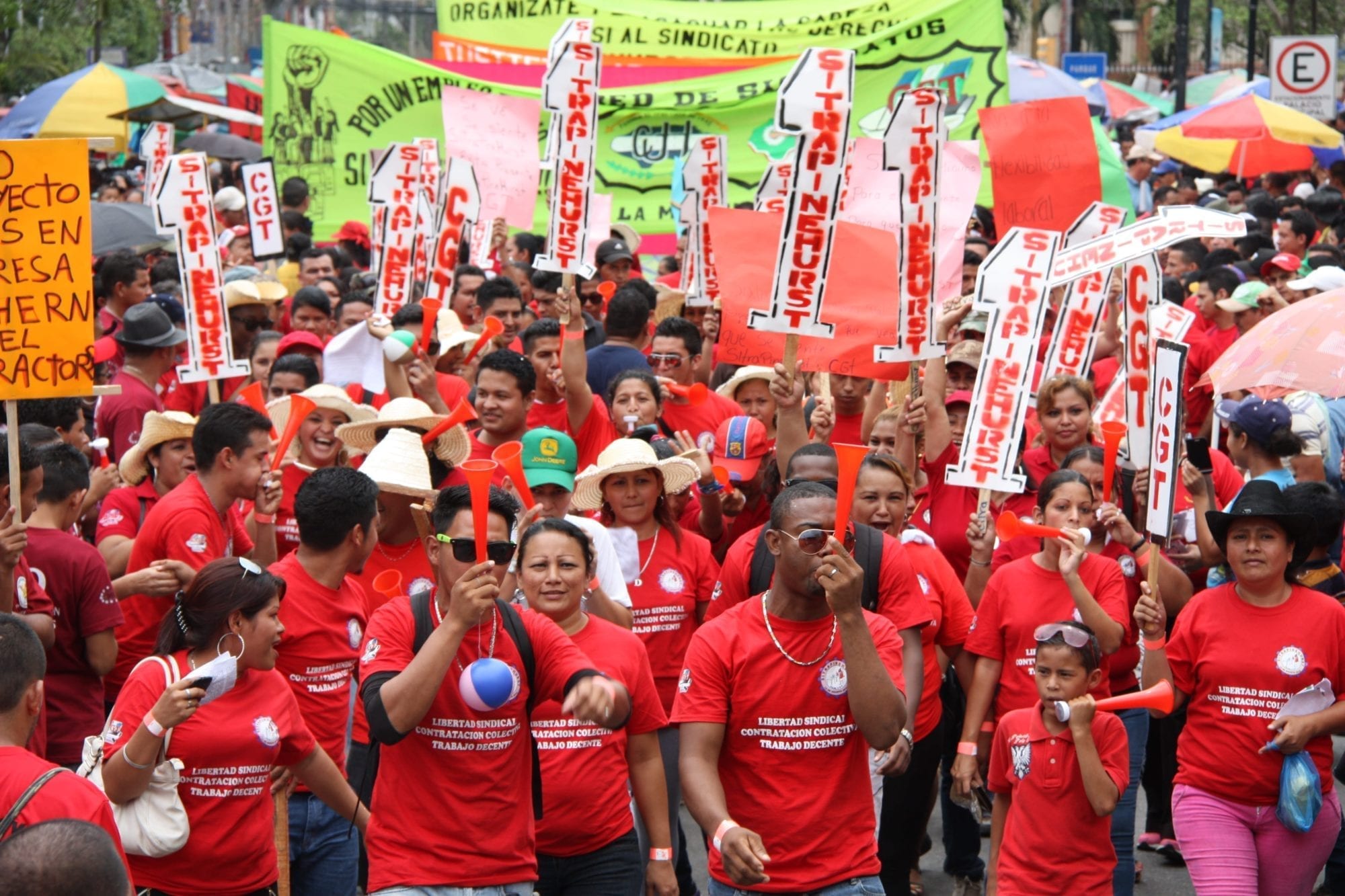Workers around the world experienced rising physical violence and threats over the last year—and in more countries–according to this year’s ITUC Global Rights Index. The report documents attacks on union members in 59 countries and shows that 60 percent of countries are now excluding entire groups of workers from labor law.
“We need to look no further than these shocking figures to understand why economic inequality is the highest in modern history. Working people are being denied the basic rights through which they can organize and collectively bargain for a fair share,” said Sharan Burrow, International Trade Union Confederation general secretary.
The report’s key findings include:
- Millions of people are still enslaved under the kefala system in the Gulf, making the Middle East and North Africa once again the worst region for treatment of workers
- Unionists were murdered in 11 countries: Bangladesh, Brazil, Colombia, Guatemala, Honduras, Italy, Mauritania, Mexico, Peru, the Philippines and Venezuela
- The number of countries in which workers are exposed to physical violence and threats increased from 52 to 59 countries, including Colombia, Egypt, Guatemala, Indonesia and Ukraine
- Eighty-four countries exclude entire categories of workers from labor law
- More than three-quarters of countries deny some or all workers their right to strike
- More than three-quarters of countries deny some or all workers collective bargaining
- Out of 139 countries surveyed, 50 deny or restrict free speech and freedom of assembly.
The report ranks the 10 worst countries for worker rights in 2017 as Bangladesh, Colombia, Egypt, Guatemala, Kazakhstan, the Philippines, Qatar, South Korea, Turkey and the United Arab Emirates.
Read the report: ITUC Global Rights Index 2017
Download the ITUC Global Rights Index map
Download the ITUC Global Rights Index Infographic – Violation of workers’ rights
Download the ITUC Global Rights Index Infographic – Ten worst countries in the world for working people

